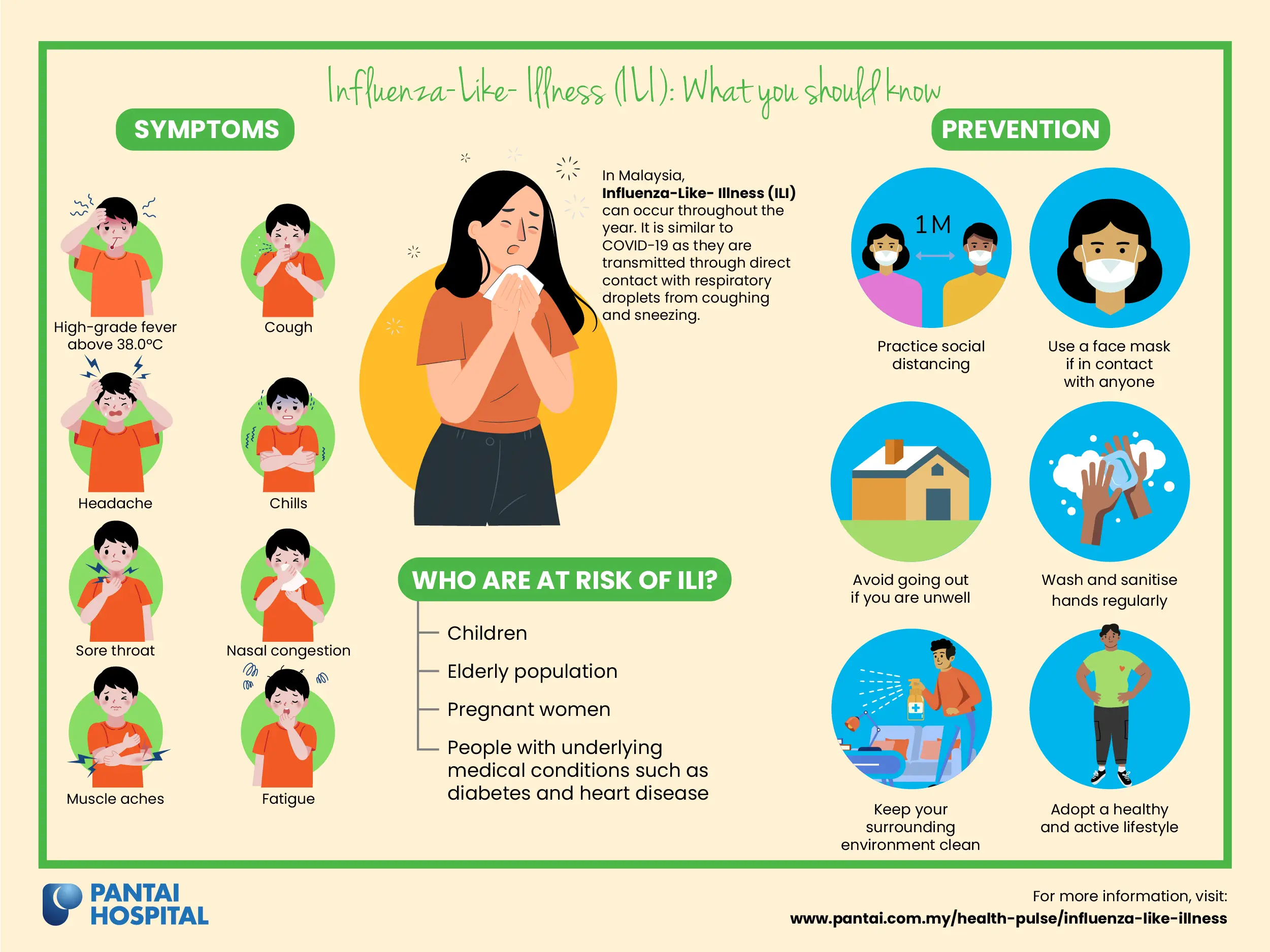Topics
What is Influenza-Like-Illness (ILI)?
Influenza-like-illness (ILI) is an acute respiratory illness with a fever of ≥ 38°C and a cough, starting within the last 10 days. Severe acute respiratory infection (SARI) is also included in these symptoms but require hospitalisation.
What are the symptoms of Influenza-Like-Illness (ILI)?
The symptoms for influenza-like-illness include:
- High-grade fever above 38.0ºC
- Cough
- Headache
- Chills
- Sore throat
- Nasal congestion
- Muscle or body aches
- Fatigue
Gastrointestinal symptoms such as nausea, vomiting and diarrhoea can occasionally accompany influenza, especially in children.
In most cases, the symptoms subside within 10 days. However, for some, the symptoms could worsen within 48 hours.
Rise in hMPV Cases: What You Need to Know
In 2024, Malaysia saw an increase in hMPV cases, jumping from 225 in 2023 to 327. hMPV, caused by the Pneumoviridae virus, is a respiratory infection with symptoms that feel a lot like the flu.
While it is not a new illness and is not something that needs to be reported under the Prevention and Control of Infectious Diseases Act 1988, it is still important to stay cautious—especially during flu season.

Who are at risk of ILI?
The following group of individuals are at risk of ILI:
- Children
- Elderly population
- Pregnant women
- People with underlying medical conditions such as diabetes and heart disease
What can I do to prevent ILI?
Here are a few preventive measures that you can take to prevent ILI. They are similar to the steps taken to prevent other respiratory infections such as COVID-19 and human metapneumovirus (hMPV).
- Practice social distancing.
- Use a face mask if in contact with anyone.
- Avoid going out if you are unwell.
- Wash and sanitise hands regularly.
- Keep your surrounding environment clean.
- Adopt a healthy and active lifestyle.
Should I get vaccinated against influenza?
Another measure that can aid in preventing the severity of ILI would be influenza vaccination.
Getting an influenza vaccine may not prevent you from contracting the disease but it can prevent severe complications of the disease.
Consult your doctor on the influenza vaccine that would be suitable for you.
What should I do if I suspect I have influenza?
If you are showing any influenza-like symptoms and you suspect that you have influenza infection, you should seek medical attention.
You would also need to quarantine yourself and stay home to avoid contact with other people.
Most people with influenza have mild symptoms and do not require hospitalisation or antiviral drugs. However, if your symptoms worsen, seek medical attention immediately.
Make an appointment at Pantai Hospital
If you know that you are at a higher risk of influenza-related complications, or if you are concerned about the illness, please consult a doctor by making an appointment through our website, or download our MyHealth360 application from Google Play Store or Apple App Store.
To make an appointment for health screening, please contact the health screening centre at the Pantai Hospital nearest to you
Pantai Hospitals have been accredited by the Malaysian Society for Quality in Health (MSQH) for its commitment to patient safety and service quality.













